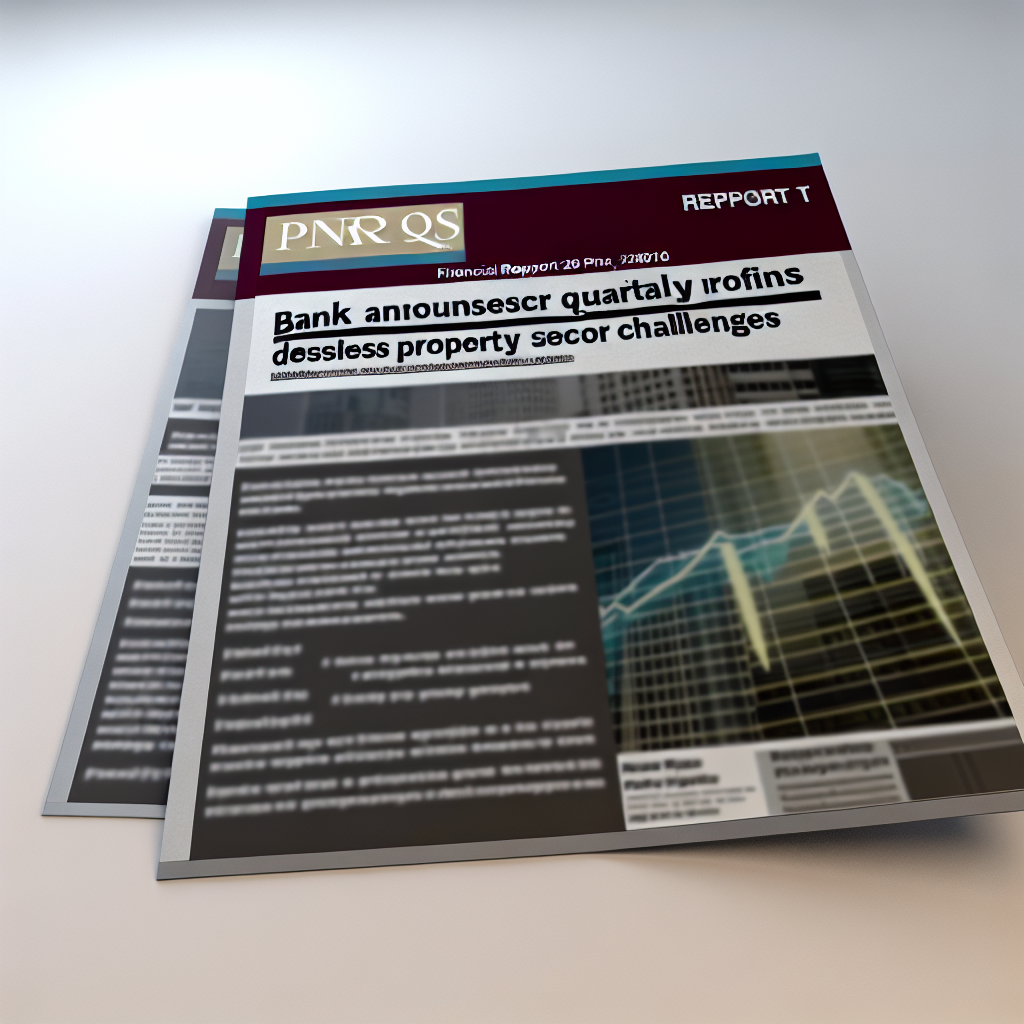Bank of China Reports Record Quarterly Profits Despite Property Sector Challenges
The Bank of China (BoC), one of the largest financial institutions in the world, has recently announced record quarterly profits, showcasing its resilience in the face of significant challenges within the property sector. This article delves into the factors contributing to BoC’s impressive financial performance, the current state of China’s property market, and the implications for the broader economy.
Record Profits Amidst Adversity
In its latest financial report, the Bank of China revealed a remarkable increase in net profit for the third quarter of 2023, reaching an all-time high of 80 billion yuan (approximately $12 billion). This figure represents a year-on-year growth of 15%, defying expectations in a climate where many financial institutions are grappling with the fallout from a struggling property market.
Several key factors have contributed to this impressive performance:
- Diversified Revenue Streams: The bank has successfully diversified its income sources, reducing reliance on traditional lending. This includes increased fees from wealth management and investment banking services.
- Cost Management: BoC has implemented stringent cost-control measures, optimizing operational efficiency and reducing non-performing loans.
- International Expansion: The bank’s strategic focus on international markets has paid off, with significant growth in overseas operations, particularly in Southeast Asia and Europe.
The Property Sector’s Struggles
Despite BoC’s success, the Chinese property sector continues to face significant challenges. The sector has been under pressure due to a combination of regulatory crackdowns, rising interest rates, and a slowdown in economic growth. Major developers have defaulted on debts, leading to a crisis of confidence among investors and homebuyers.
Key issues affecting the property market include:
- Debt Defaults: High-profile defaults by major developers like Evergrande have raised concerns about the stability of the entire sector.
- Regulatory Changes: The Chinese government has imposed strict regulations to curb excessive borrowing and speculative investments, which has led to a slowdown in new construction projects.
- Consumer Sentiment: Homebuyers are increasingly hesitant to invest in property, fearing further declines in prices and potential losses.
BoC’s Strategic Response
In response to the challenges in the property sector, the Bank of China has adopted a proactive approach to mitigate risks while capitalizing on opportunities. Some of the strategies include:
- Increased Lending to Quality Projects: BoC has focused on providing financing to high-quality real estate projects that meet stringent criteria, ensuring that funds are allocated to sustainable developments.
- Support for Homebuyers: The bank has introduced favorable mortgage terms to stimulate demand among first-time homebuyers, aiming to revive consumer confidence in the housing market.
- Investment in Technology: BoC is leveraging technology to enhance its risk assessment capabilities, allowing for better decision-making in lending practices.
Implications for the Broader Economy
The resilience of the Bank of China amidst property sector challenges has broader implications for the Chinese economy. As one of the largest lenders in the country, BoC’s performance can influence market sentiment and investor confidence. A few potential outcomes include:
- Stabilization of the Financial Sector: BoC’s strong performance may help stabilize the financial sector, encouraging other banks to adopt similar strategies.
- Increased Investment: A robust banking sector can lead to increased investment in other areas of the economy, fostering growth and innovation.
- Policy Adjustments: The government may consider adjusting policies to support the property market, influenced by the performance of major banks like BoC.
Conclusion
The Bank of China’s record quarterly profits highlight its ability to navigate through turbulent times in the property sector. By diversifying revenue streams, managing costs effectively, and strategically responding to market challenges, BoC has set a precedent for resilience in the financial industry. As the property market continues to evolve, the bank’s performance will be closely watched, serving as a barometer for the health of the broader Chinese economy. The lessons learned from BoC’s success may provide valuable insights for other financial institutions facing similar challenges in the future.





